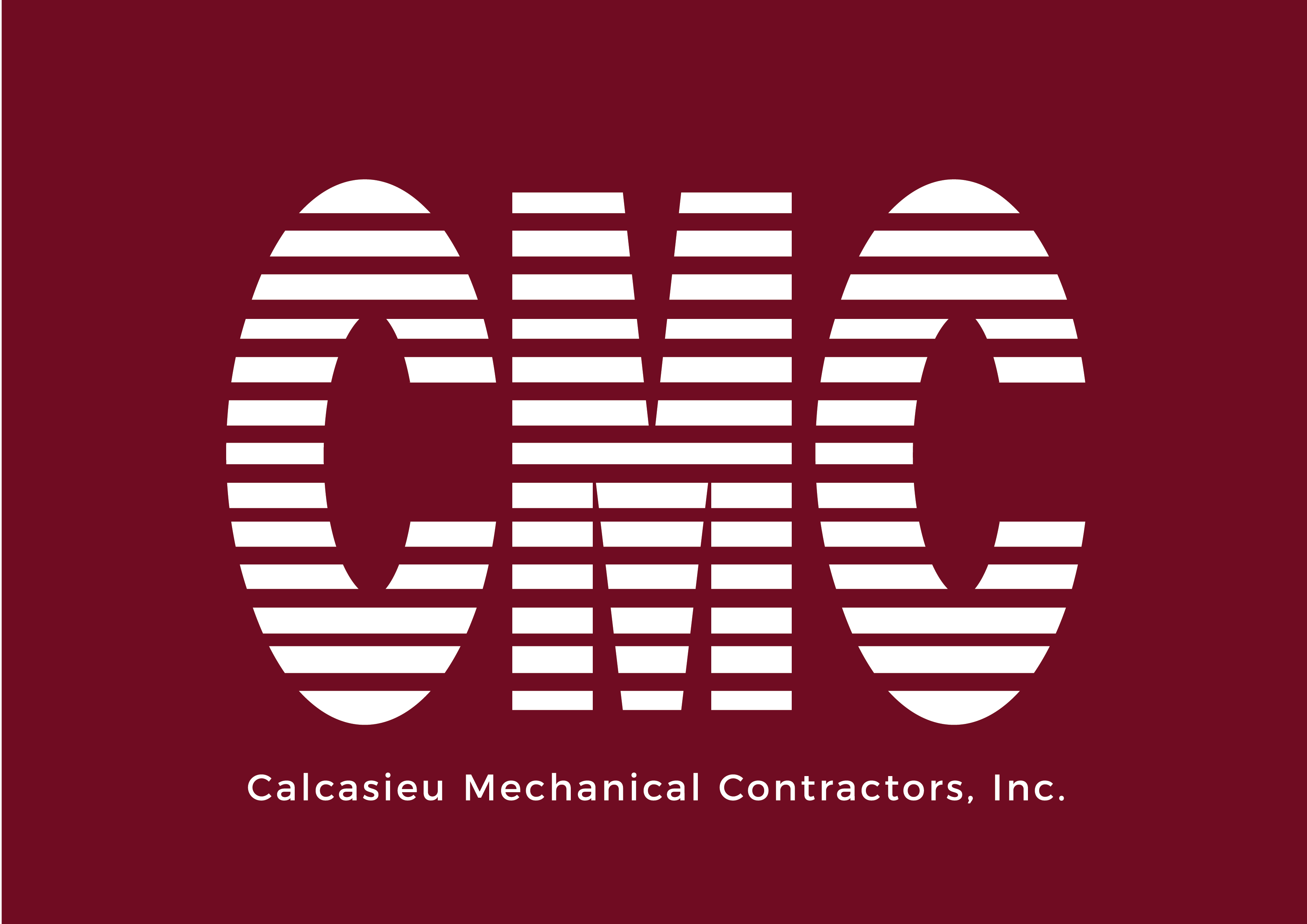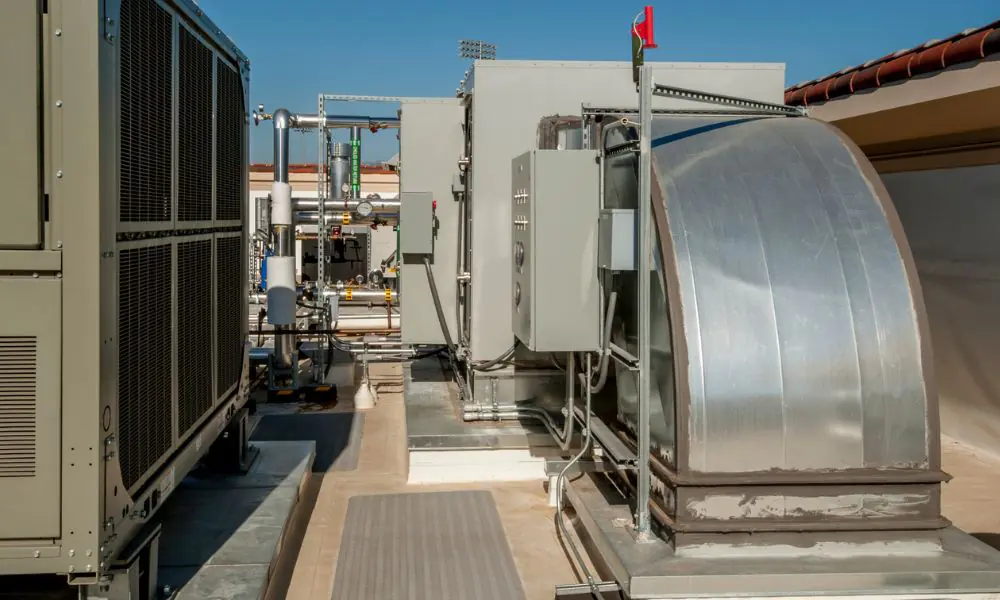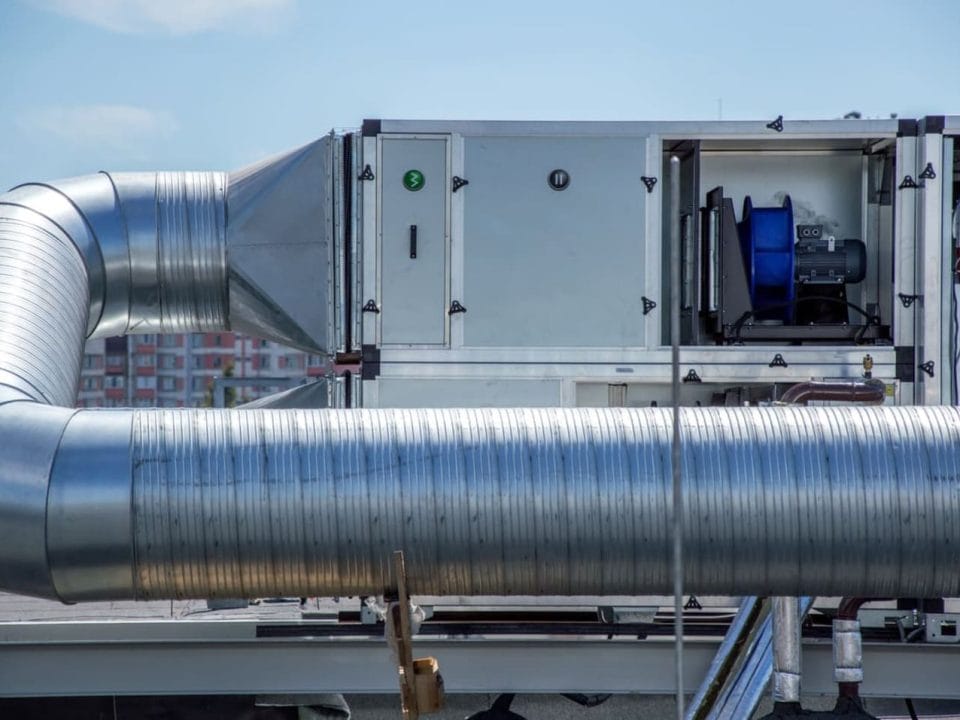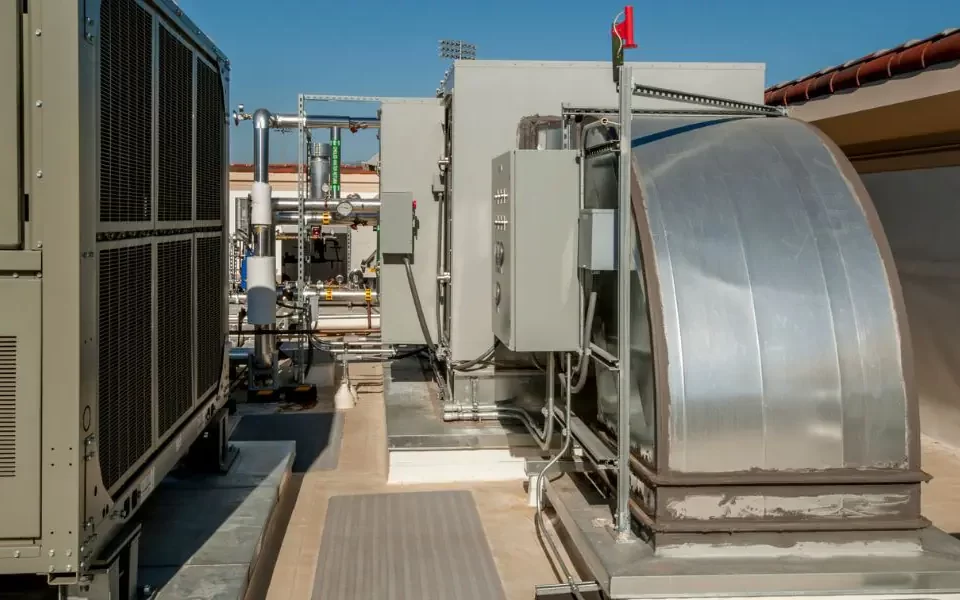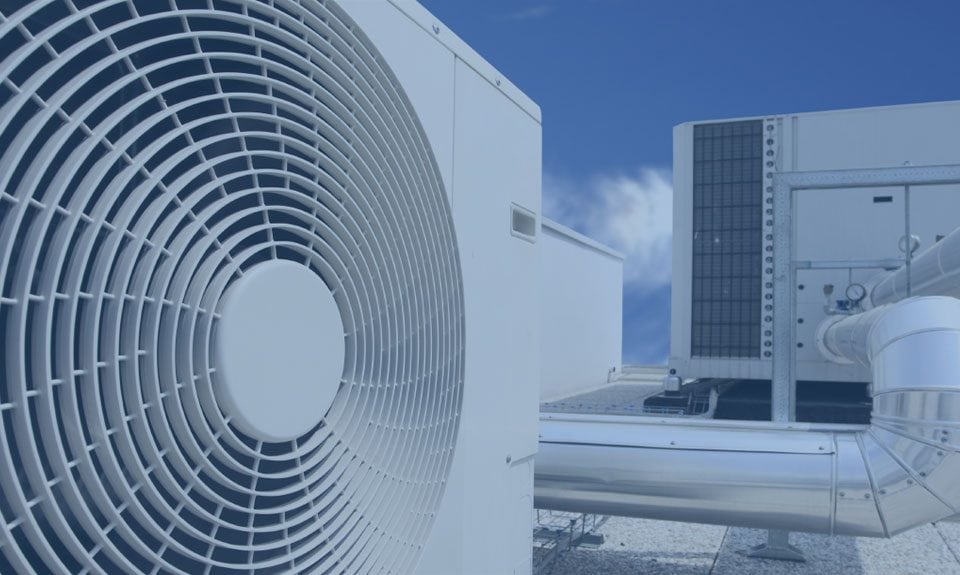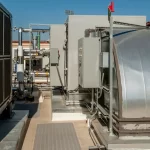
How to Select a Trustworthy HVAC Service Company: Expert Tips
June 26, 2025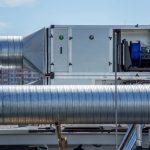
The True Cost of Delaying Commercial HVAC Maintenance
July 9, 2025HVAC systems often produce various noises that may seem minor but can signal serious mechanical or refrigerant problems. When your commercial HVAC unit makes rattling, squealing, or banging sounds, it’s essential to recognize these as potential warnings of component failure or air leaks. Addressing these noises promptly helps you avoid costly repairs, reduce energy waste, and maintain a comfortable indoor environment. This guide will help you identify the meaning of each noise and show you how to respond effectively, ensuring your system runs smoothly and safely.
Key Takeaways:
- Noises such as rattling, thumping, squealing, or hissing in your commercial HVAC system often indicate specific mechanical or ductwork issues that need prompt diagnosis and repair.
- Ignoring unusual HVAC sounds can lead to diminished system efficiency, higher energy costs, and potential safety hazards, especially in environments with extreme weather conditions.
- Scheduling regular maintenance with a trusted HVAC service helps identify and fix minor problems early, preventing more serious failures and extending the lifespan of your system.
The Distinctive Language of HVAC Systems
Recognizing Sound Patterns: What They Mean
Each noise your HVAC system makes carries a distinct message. A rhythmic clicking might indicate a relay switch malfunction, while a sudden clunk could signal failing fan blades striking internal parts. Persistent squeals often indicate worn motor bearings or slipping belts, while intermittent thumps may be attributed to compressor issues or ductwork problems. Tuning your ear to these sound patterns can help you pinpoint potential problems early, ultimately saving you from expensive repairs or downtime.
The Importance of Auditory Feedback in HVAC Functionality
Listening closely to your HVAC system offers a window into its operational health. Variations in sound can reveal changes in component performance, refrigerant flow, or airflow resistance. Detecting subtle hisses or gurgles might alert you to refrigerant leaks or blocked condensate lines, conditions that, if ignored, can escalate rapidly. Sound serves as a continuous diagnostic tool, alerting you to inefficiencies or mechanical wear before they manifest into failures.
Auditory feedback functions much like a mechanical heartbeat, providing real-time data about the internal mechanics of your system. For instance, a slight increase in motor noise of just a few decibels could indicate bearing lubrication failure, which, left unresolved, can lead to complete motor burnout. Similarly, a faint hissing noise often points to refrigerant escaping through microscopic leaks—a warning sign that the system’s cooling capacity and energy efficiency are already compromised. By training yourself to recognize these auditory cues, you gain the ability to schedule timely maintenance, avoid unexpected breakdowns, and significantly extend the lifespan of your HVAC equipment.
6 Common Noisy Culprits and Their Origins
Rattling Noises: Uncovering Loose Components
Rattling often indicates loose screws, fan blades, or improperly secured access panels that vibrate as your system operates. These sounds might seem minor, but they can signal that parts are gradually falling out of alignment. While tightening loose components can sometimes resolve rattles, ignoring them could mask deeper issues, such as unbalanced fans or failing mounts. A timely inspection helps prevent escalation into more disruptive failures.
Thumping Sounds: Identifying Mechanical Issues
Thumping noises typically stem from broken compressor springs or fans striking metal during operation. These impacts create irregular, sharp sounds that shouldn’t be overlooked. Ductwork problems, such as holes or broken seals, might also cause similar thumping by disrupting airflow pressure.
Deeper troubleshooting often reveals that a worn or misaligned compressor spring causes repetitive thumps synchronized with the compressor cycle. Over time, these broken springs increase vibration and risk damage to internal components, potentially leading to compressor failure—a costly repair. Additionally, if ductwork leaks or gaps amplify air pressure fluctuations, the resulting thumping can further stress the HVAC system. Addressing both mechanical and duct-related causes promptly limits downtime and avoids safety hazards.
Squealing or Screeching: Belt and Bearing Troubles
Squeals and screeches originate from worn motor bearings or degraded fan belts slipping during operation. These high-pitched sounds signal friction and distress inside your system, indicating urgent attention is needed to avoid breakdowns.
Bearing damage often results from inadequate lubrication or contamination, causing the motor shaft to produce a continuous squealing sound. Fan belts, made of elastomeric materials, can harden and crack over time, resulting in a loss of tension and increased slipping under load. Without timely replacement or lubrication, these components scrape and screech louder, reducing system efficiency and increasing energy use. Regular servicing helps detect belt wear and bearing issues early, ensuring smooth and quiet operation.
Clanking or Banging: The Dangers of Metal-to-Metal Contact
Loud clanks or bangs arise when metal parts collide inside the unit due to severe misalignment, broken mounting brackets, or foreign objects lodged in the blower. These are warnings of potentially serious internal failures demanding immediate shutdown.
Metal-to-metal contact can rapidly damage fans, compressors, or housing structures, posing safety risks including electrical shorts or fires. Large impact noises often accompany failing motors or severely bent fan blades. Ignoring such sounds risks extensive component replacement and system outage. Disabling the unit and calling a certified technician reduces damage, ensuring safe, reliable repairs without risking costly emergency breakdowns.
Bubbling or Hissing Noise: Fluid Dynamics at Play
Bubbling or hissing typically indicates refrigerant leaks or blocked condensate drain lines, resulting in abnormal fluid flow sounds within your system. These noises can compromise cooling efficiency and signal urgent repair needs.
Refrigerant leaks lower system pressure, leading to hissing from escaping gas and potential ice formation on coils, reducing heat exchange capacity. Meanwhile, clogged condensate drains trap water, creating gurgling or bubbling sounds as trapped fluid moves irregularly. Left unattended, these issues strain the compressor and risk water damage inside your equipment. Timely leak detection and drain cleaning restore safe, effective operation.
Low-frequency Drones: Airflow and Pressure Disturbances
Persistent low-frequency humming or drone noises often arise from airflow restrictions or pressure imbalances within ductwork and fans. Such disturbances may indicate dirty filters, obstructed vents, or malfunctioning blowers.
When dirt or debris clogs filters, airflow reduces and pressure increases, forcing blowers to work harder and produce a deep, rumbling sound. Similarly, oddly shaped or damaged duct sections disrupt smooth airflow, creating resonance that your ears detect as a humming sound. Over time, this stresses the system’s motors, reducing overall efficiency and potentially leading to premature wear. Addressing airflow obstacles and maintaining clean components helps eliminate these persistent background noises.
The Costly Consequences of Ignoring Noise Alerts
The Economics of HVAC Failures in Commercial Spaces
When your commercial HVAC system starts making unusual noises, the financial fallout can escalate rapidly. Repair bills often skyrocket when minor issues, such as loose screws or worn belts, are ignored and allowed to develop into more severe problems, like broken compressors or refrigerant leaks. Interruptions in climate control can reduce employee productivity by up to 20% and lead to tenant complaints, which may impact lease renewals. Factoring in downtime costs and emergency repairs, an untreated noisy system can easily cost you thousands of dollars more per year than timely maintenance would.
Long-term Damage vs. Immediate Repairs: Weighing Your Options
Choosing between quick fixes and comprehensive repairs involves weighing upfront costs against potential future damage. Immediate small repairs, such as tightening loose panels or lubricating fan belts, may seem less expensive, but neglecting them can accelerate wear on major components, like motors and compressors. On the other hand, replacing key parts early can extend system lifespan by 25% or more, reducing the frequency of costly emergency replacements. Understanding which noises signal minor issues versus impending failure helps you strategize repairs and budget effectively.
For instance, a persistent squealing noise often indicates worn motor bearings, which if left untreated, can lead to motor burnout requiring full replacement—potentially costing 5 to 10 times more than bearing repair. Conversely, rattling noises from loose screws might only require a quick tightening job, but can also be precursors to panel damage or misalignment, causing airflow disruptions. Assessing these noises with professional guidance allows you to prioritize repairs that protect your investment, minimize downtime, and optimize energy efficiency.
Houston-Specific Concerns: When Timely Action is Crucial
The Unique HVAC Challenges of Humid Climates
Houston’s high humidity creates a challenging environment for HVAC systems, as moisture can accelerate corrosion of internal parts and promote mold growth within ducts and coils. Your system works harder to remove excess moisture, which can increase wear on components like compressors and blower motors. These conditions make resolving noises—such as squealing belts or hissing refrigerant leaks—not just a comfort issue but necessary to prevent performance drops and costly breakdowns during Houston’s long, muggy summers.
Local Laws and Regulations Impacting HVAC Maintenance
Compliance with Houston’s local codes and environmental regulations shapes how you maintain your commercial HVAC system. Specific requirements often mandate timely refrigerant leak repairs and proper disposal of hazardous materials, while energy efficiency standards influence allowable system modifications. Staying aligned with these rules not only helps avoid penalties but can also qualify your business for utility rebates or tax incentives.
Houston’s climate control regulations, for instance, enforce strict limits on refrigerant types and quantities used, reflecting EPA’s phase-out schedules to reduce ozone depletion and greenhouse gases. Regular inspections and documented maintenance are frequently required for larger commercial systems to uphold air quality and efficiency standards. Failing to comply with these regulations risks fines, increased operational costs, and potential disruptions to your business. Proactive coordination with licensed HVAC professionals familiar with Houston’s legal landscape ensures your system remains both compliant and optimized for peak performance.
Trusting the Right Professionals for Timely Solutions
How to Select a Reliable HVAC Service Provider
Look for HVAC contractors who are licensed and insured, with proven experience in commercial systems, especially in climates like Houston’s. Check customer reviews and ask for references related to noise diagnostics and repairs. Reliable providers offer transparent estimates, clear communication, and flexible scheduling to reduce downtime. Selecting a service with specialized knowledge in identifying distinct HVAC noises ensures that you won’t just get a quick fix, but a thorough solution that extends the lifespan of your system.
The Value of Regular Professional Inspections and Maintenance
Routine inspections reveal early-stage wear and tear—such as worn belts, loose screws, or refrigerant leaks—before these issues generate disruptive noises or system failures. Professionals conduct comprehensive diagnostics, including testing motor bearings and inspecting duct integrity, which helps maintain optimal efficiency and prevents costly emergency repairs.
Studies indicate that regular maintenance can reduce HVAC breakdowns by up to 30%, resulting in significantly lower energy consumption and maintaining consistent climate control. With Houston’s heavy HVAC usage, scheduled tune-ups allow technicians to calibrate your system, clean coils, and replace aging parts before they cause noise or uneven cooling. This proactive approach lowers utility bills and extends equipment life, minimizing business interruptions and protecting your investment.
Proactive Maintenance: Your Best Defense Against Noise
Routine Check-Ups: Keeping Sounds in Check
Regular inspections identify potential issues before they escalate into noisy, costly repairs. HVAC professionals typically recommend scheduling professional tune-ups twice a year, ideally before high-demand seasons, to check for loose screws, worn belts, and refrigerant levels. This preventive approach not only keeps rattles, squeals, and banging noises at bay but also helps maintain peak system efficiency, reducing unexpected downtime and extending your system’s lifespan.
Understanding How Maintenance Can Mitigate Noisy Issues
Maintenance tackles the root causes of noise by addressing mechanical wear and tear early. For example, lubricating fan belts prevents screeching sounds, while tightening loose panels eliminates rattling. Clearing clogged drain lines removes bubbling or hissing caused by water buildup. By replacing deteriorated parts before they fail, you avoid loud clanks or compressor thumps that indicate serious problems. Consistent attention can transform repeated noise issues into minor, manageable problems that save you from expensive emergency repairs.
Delving deeper, maintenance allows technicians to perform thorough diagnostics that reveal hidden issues, such as refrigerant leaks, which often produce subtle hissing sounds before escalating. Catching these leaks quickly prevents damage to compressors and other components, protecting your investment. Additionally, motor bearings, a common source of squealing, wear down over time, and timely replacements preserve smooth operation. Regular cleaning prevents dirt accumulation that otherwise causes imbalance and vibration noises. Each proactive step directly reduces noise sources while enhancing overall system reliability and efficiency, making maintenance an indispensable strategy for commercial HVAC systems in demanding environments.
Final Thoughts
Addressing HVAC noise isn’t just about comfort—it’s about protecting your investment and maintaining operational efficiency. Your system’s internal components undergo constant stress, especially in demanding climates like Houston’s, where temperatures can push equipment to its limits. For instance, a single worn-out fan belt left unaddressed can not only cause that distinctive screeching noise but may also lead to motor overheating and a costly compressor failure down the line. Statistics show that proactive repairs reduce the likelihood of emergency breakdowns by nearly 40%, saving both time and significant expense.
Partnering with a dependable commercial HVAC service provider ensures that you have skilled eyes catching hidden issues early. Technicians can spot subtle signs, such as minor rattles, that precede major duct leaks or refrigerant loss. With professional support, you avoid escalating problems that might otherwise cause uneven cooling, increased energy bills by up to 25%, or even complete system outages during peak business hours. These disruptions can affect not just your HVAC equipment but also employee comfort and customer experience.
Investing in regular inspections and timely interventions significantly extends the system’s lifespan. Research indicates that well-maintained HVAC systems can operate efficiently for 15-20 years, compared to only 10-12 years for neglected units. Through routine care, you also optimize energy usage, helping your business run greener and more cost-effectively in commercial environments where every minute of downtime counts. Staying ahead of noise-related warning signs means preserving productivity and avoiding unexpected expenses.
Ultimately, staying informed about what each noise signals allows you to act decisively rather than react after damage has occurred. Recognizing when a rattling screw is just a minor fix versus when a banging sound demands immediate shutdown can prevent dangerous situations and costly repairs. Trusting expert technicians who understand the nuances of HVAC systems provides you with reliable diagnoses and precise solutions tailored to your system’s needs.
Maintaining a quiet and efficient commercial HVAC system requires a combination of vigilance, expertise, and professional support. Equipped with these tools, you can enjoy a comfortable indoor environment year-round, maximize equipment performance, and safeguard your facility’s operations against avoidable disruptions.
FAQs
Can Noisy HVAC Units Increase Energy Bills Even If They Still Work?
Noises often point to inefficiencies within your HVAC system. Loose parts, worn belts, or malfunctioning components force your unit to work harder, consuming more electricity. Studies show that inefficient HVAC systems can increase energy consumption by up to 30%, resulting in significantly higher utility bills. Addressing noises early not only restores comfort but also helps you save on operational costs.
How Quickly Should I Schedule Service After Hearing a New HVAC Noise?
Schedule a service appointment immediately after noticing any unfamiliar noises. Even if your system appears to function properly, early sounds can signal problems that worsen quickly, leading to more extensive damage and expensive repairs. Acting fast helps prevent downtime and keeps your system efficient during critical usage periods.
Delaying a professional inspection increases the risk of mechanical failure. For example, a thumping noise may indicate a broken compressor spring, which can escalate into total compressor failure if left unaddressed. Early diagnosis often means simpler repairs and avoids impacting the comfort of your workspace or business operations, especially in climates with extreme heat and humidity.
Is It Safe to Keep Running My HVAC System If It’s Making Noise?
Continuing to run a noisy HVAC system isn’t always safe. While some sounds are minor, noises like banging, clanking, or hissing can signal severe mechanical breakdowns or refrigerant leaks. These conditions may damage your system further or pose safety risks. Shutting off the unit and consulting a technician helps protect your equipment and premises.
For instance, a hissing noise often indicates a refrigerant leak, which not only reduces cooling efficiency but can also be hazardous to health. Similarly, clanking noises can indicate loose or broken parts that may cause internal damage if the system remains active. Immediate action helps contain damage and prevents costly emergency repairs.
Do HVAC Warranties Cover Repairs for Noisy System Issues?
Warranty coverage varies significantly depending on the provider and plan. Many HVAC warranties cover parts and labor for mechanical failures, but noises resulting from neglect, improper maintenance, or user error might be excluded. Thoroughly reviewing your warranty terms can clarify what repairs are covered and what costs you may be responsible for.
Some warranties require regular professional maintenance records to remain valid. Ignoring unusual noises and skipping tune-ups may void your coverage in the event of failures related to those issues. Maintaining consistent service documentation can save you money by ensuring eligible repairs are covered.
Can Regular Maintenance Help Prevent Noisy HVAC Problems?
Scheduled maintenance is effective at catching worn components, such as belts, bearings, or loose hardware, before they generate noise. Regular tune-ups, including lubrication, tightening, and part replacements, reduce the likelihood of unexpected sounds and breakdowns, prolonging your system’s lifespan and maintaining efficiency.
Maintenance visits typically include inspecting fan blades, motor bearings, and ductwork for early signs of wear or disintegration. For example, lubricating fan belts can eliminate squealing noises, and tightening screws prevents rattling. Investing in routine care usually pays off by avoiding costly emergency repairs and minimizing disruptive downtime.

Hailing from the picturesque town of Lake Charles, Louisiana, Jim Blanchard stands as an exemplar in commercial HVAC installation and services. As President of Calcasieu Mechanical, he has leveraged his deep industry knowledge and innovative strategies to establish the company as a leading regional service provider. Under Jim’s leadership, Calcasieu Mechanical has expanded its portfolio of high-quality services and earned the trust and respect of businesses throughout Louisiana. The company’s commitment to excellence, reflected in its endeavors, stems from Jim’s dedication to ensuring every project meets and exceeds client expectations.
